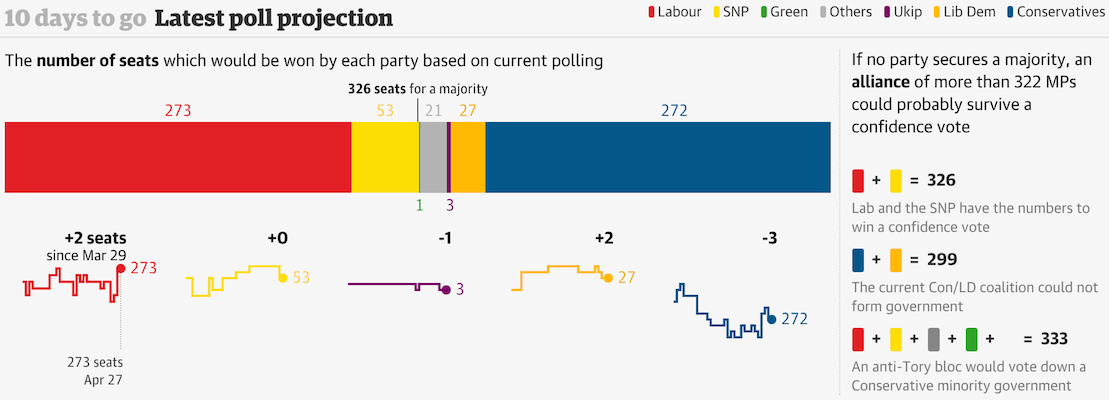According to current exit polling from the UK, the Conservatives surged way ahead of pre-election polling and will finish just 10 seats short of a majority. With Lib Dems, far-right UKIP, and conservative unionist Northern Irish parties supporting, they would be able to form a government. The Lib Dems got crushed but still are kingmakers — which is toxic for them since so many LD voters bailed because of their role in the coalition government last time, which would be even less powerful this time around. In fact, the Conservatives seem well positioned to just form a minority government, though I don’t know how long it could last even under the Fixed-term Parliaments Act.
Labour got all but swept in Scotland by the SNP (i.e. maybe one seat remains) and lost in England to add insult to desperation. They ended up finishing worse than in 2010, contrary to all pre-election polling.
Bottom line from the current exit polling: Conservatives outperformed expectations by quite a lot and will probably lead the next government. Labour screwed up badly on top of their Scotland problems.




